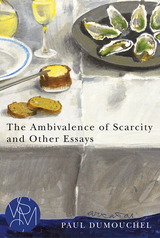
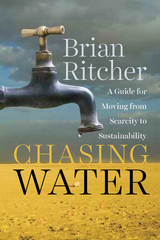
International water expert Brian Richter argues that sustainable water sharing in the twenty-first century can only happen through open, democratic dialogue and local collective action. In Chasing Water, Richter tells a cohesive and complete story of water scarcity: where it is happening, what is causing it, and how it can be addressed. Through his engaging and nontechnical style, he strips away the complexities of water management to its bare essentials, providing information and practical examples that will empower community leaders, activists, and students to develop successful and long-lasting water programs.
Chasing Water will provide local stakeholders with the tools and knowledge they need to take an active role in the watershed-based planning and implementation that are essential for water supplies to remain sustainable in perpetuity.
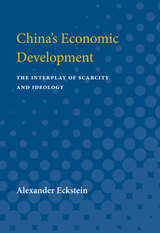
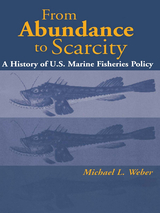
The management of coastal and ocean fisheries is highly contentious. Industry interests focus on maximizing catches while conservationists and marine scientists have become increasingly concerned about dramatic declines in fish stocks and the health of ecosystems. Besides attempting to mediate among these interests, government agencies have pursued their own agendas, which have often lagged behind shifts in scientific understanding and public attitudes about the productivity of the oceans and uses of marine wildlife.
From Abundance to Scarcity examines the historical evolution of U.S. fisheries policy and institutions from the late 19th century to the present day, with an emphasis on changes since World War II. Based on archival research and interviews with dozens of key players in marine policymaking, it traces the thinking, legislation, mandates, and people that have shaped the various agencies governing fisheries in the United States. The book:
- discusses the development of federal programs in marine biological sciences and the evolution of scientific understanding about marine wildlife populations
- describes the work of federal fisheries programs in promoting the interests of the fishing industry
- considers the response of agencies to factors such as dam-building and coastal development that have led to increased pollution and habitat loss
- examines the shifts in understanding and values that underlie major legislation including the Marine Mammal Protection Act, the Endangered Species Act, the Magnuson-Stevens Act, and the Sustainable Fisheries Act
- examines the evolving relationship between federal agencies, the fishing industry, communities, and nongovernmental conservation organizations, with an eye toward future management practice
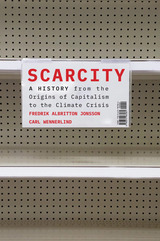
A sweeping intellectual history of the concept of economic scarcity—its development across five hundred years of European thought and its decisive role in fostering the climate crisis.
Modern economics presumes a particular view of scarcity, in which human beings are innately possessed of infinite desires and society must therefore facilitate endless growth and consumption irrespective of nature’s limits. Yet as Fredrik Albritton Jonsson and Carl Wennerlind show, this vision of scarcity is historically novel and was not inevitable even in the age of capitalism. Rather, it reflects the costly triumph of infinite-growth ideologies across centuries of European economic thought—at the expense of traditions that sought to live within nature’s constraints.
The dominant conception of scarcity today holds that, rather than master our desires, humans must master nature to meet those desires. Albritton Jonsson and Wennerlind argue that this idea was developed by thinkers such as Francis Bacon, Samuel Hartlib, Alfred Marshall, and Paul Samuelson, who laid the groundwork for today’s hegemonic politics of growth. Yet proponents of infinite growth have long faced resistance from agrarian radicals, romantic poets, revolutionary socialists, ecofeminists, and others. These critics—including the likes of Gerrard Winstanley, Dorothy Wordsworth, Karl Marx, and Hannah Arendt—embraced conceptions of scarcity in which our desires, rather than nature, must be mastered to achieve the social good. In so doing, they dramatically reenvisioned how humans might interact with both nature and the economy.
Following these conflicts into the twenty-first century, Albritton Jonsson and Wennerlind insist that we need new, sustainable models of economic thinking to address the climate crisis. Scarcity is not only a critique of infinite growth, but also a timely invitation to imagine alternative ways of flourishing on Earth.
READERS
Browse our collection.
PUBLISHERS
See BiblioVault's publisher services.
STUDENT SERVICES
Files for college accessibility offices.
UChicago Accessibility Resources
home | accessibility | search | about | contact us
BiblioVault ® 2001 - 2024
The University of Chicago Press









